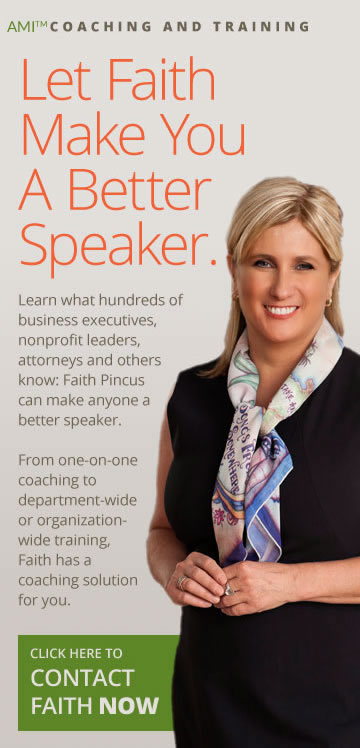Legal pros breakout: Building your case, part 2
Wrapping up our look at the support materials for legal professionals, here are a few things to consider about citing a case, quoting statutes or legal opinions.
4 unbreakable rules about quoting cases
This may be self explanatory but it still has to be mentioned: There are a few specific rules to remember when using, or citing, a case in a presentation:
- Always cite the case twice if you’re going to cite it at all. Repetition reinforces your point.
- Instead of, or in addition to, citing the case, be sure to provide your audience with a printed list of case names, citations and the jump page(s) related to your discussion either before or after your presentation. Be sure to tell your audience they have, or will have, this resource, so they understand why you are not verbally citing the case.
- Caveat: Obviously when you need to make a clean record, like at a motion argument, go ahead and fully cite the case. Do it clearly, slowly, and cite it twice to make sure the court reporter got it right.
- Never put a citation up on a Power Point slide. They are impossible to read and invariably someone in your audience will shout out “wait” when you change slides because they haven’t copied it all down. See rule #2 above instead.
Statutes and opinions — be strategic!
Quoting the law is usually only required or effective in a presentation in court or a legal education situation, but the rules we went over Monday regarding cases and deposition/hearing testimony apply to citing or quoting statutes. It can be used effectively, but the best advice is to use it sparingly and only to drive home a point, to set up an argument, or to teach new law or a set of skills. It’s a rare occasion when you see someone sit up straight in their seat to listen intently to an attorney referencing a statute.
As for citing opinions, worth remembering that there are legal opinions, expert opinions, lay opinions and my cousin Bobby’s opinions. All are useful depending upon the context. We’ll get into the usage in more detail at a later date, but for now, here’s what you need to know: You need to use opinions strategically, usually as persuasive (or sometimes just funny) support for your point. When not in court, however, be careful of using opinions too often.
 Did you enjoy this article?
Did you enjoy this article?



